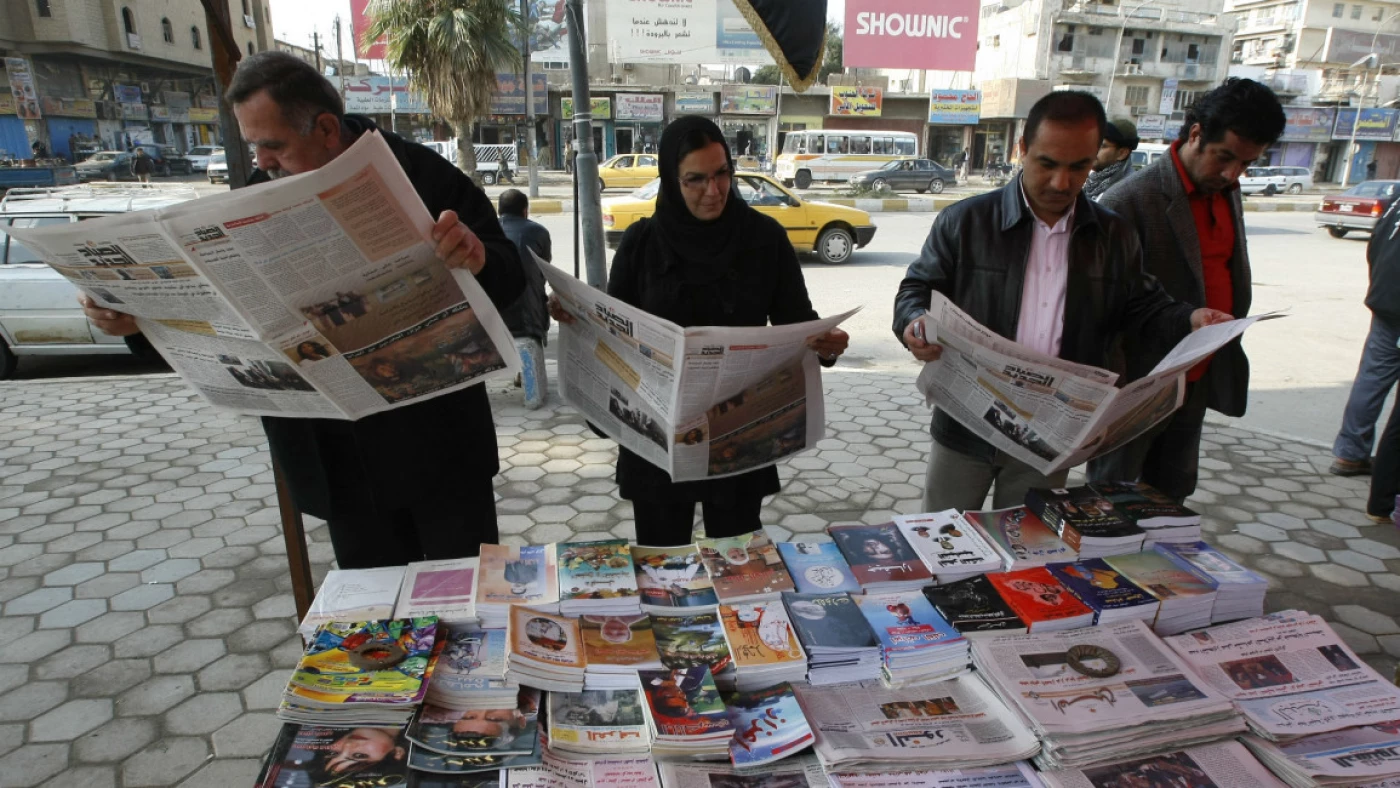A perceived minor error in a news headline ended in the sack for Mustafa Salman (not his real name).
The issue arose after Salman published an article during his morning shift. That evening, he received a reprimand from his news director in the agency WhatsApp group.
Fired Over a Headline!
The director first requested that the controversial headline be amended. Within five minutes, he ordered the article to be withdrawn. Shortly after, Mustafa was removed from the agency’s WhatsApp groups.
Salman told The New Region of his shock of his termination after a year and a half of dedicated service.
Salman explains how the article and headline about a prominent political figure precipitated his sacking. "The wording was accurate, but the full details were only clear if the entire article was read. Most people who saw the headline on social media misunderstood its meaning due to the article's template design."
The young journalist, who chose to remain anonymous for personal reasons, recounts, "The news director fired me without warning, claiming that the article provoked a group associated with a political figure, who then threatened the organization. This led to the institution issuing an unprecedented apology."
Unjust dismissal
Salman is not alone in facing persecution within a media organization. Journalist Abbas Karim had a similar experience.
In late 2021, Karim was stunned when he and his colleagues were abruptly terminated from an online news site affiliated with a satellite channel owned by the Islamic Union.
Karim tells The New Region "The website manager informed us that all 8 employees working on the site across the morning, evening, and subsequent shifts were being dismissed.
This decision came directly from the general manager following a misunderstanding about a news article. Instead of holding anyone accountable, the general manager, unconvinced by the article, chose to arbitrarily dismiss the entire staff and replace them with a new team.
"The decision to terminate their employment was a severe blow for those affected, who had financial and family responsibilities," Karim notes. "Around half of Iraqi journalists juggle multiple jobs, often working up to 12 hours a day, to safeguard against sudden dismissal from any one organization."
Iraqi Labor Law stipulates that working hours should not exceed eight hours a day and forty-eight hours a week, with certain exceptions. The law also requires a break of half an hour to an hour during work hours. If employees work beyond these hours, they are entitled to overtime.
Many other Iraqi journalists have faced similar violations to those experienced by Salman and Karim.
A proofreader at a prominent Iraqi newspaper received a termination notice in April 2022. Likewise, a news bulletin director was dismissed from a major Iraqi satellite channel in July 2023 for delaying a broadcast.
In another instance, an online news publication was shut down in January 2024 under the guise of failing to meet "political expectations”. Salary delays have forced editors at a news agency managed by a government ministry spokesperson, to resign.
Media institutions must implement legal contracts
Hadi Jalu Marii, head of the Iraqi Observatory for Press Freedoms, asserts that job insecurity faced by journalists is a longstanding issue, deeply entrenched since 2003.
"Employees in various media organizations have consistently reported being marginalized, excluded, and denied their entitlements for extended periods. They're often overworked, with tasks meant for two people being assigned to just one," Marii tells The New Region.
The lack of formal contracts has worsened the employment crisis in media institutions, making it easy to terminate employees, continues Marii. "Contracts in media institutions are crucial, but they must be genuine, not superficial, and they must be legally certified."
As head of the Iraqi Observatory for Press Freedoms he has assisted several journalists in filing lawsuits against institutions that have violated their rights. The cases have yet to ignite public debate.
Marii asserts, "Many media outlets pay their employees' salaries two or three months late and irregularly. This behavior suggests that these institutions are indifferent to journalists' welfare, assuming that journalists lack the leverage to demand their rights, resulting in neglect and leniency in the absence of accountability."
On the role of the Iraqi Journalists Syndicate, Marii explains that it "fulfills various functions, including supporting journalists when they file lawsuits and striving to provide legal protections for them."
Labor law ignored
Legal expert Sateh Ammar underscores a major flaw in the structure of journalism in Iraq. Speaking to The New Region, Ammar notes, "This issue extends to all sectors, reflecting a broader failure to enforce the guarantees and rights outlined in 2015’s Labor legislation.
"This law is virtually inactive in media institutions. Ideally, every employee should have a contract that outlines their relationship with the workplace, covering minimum wage, working hours, contract termination procedures, and methods of arbitration and litigation."
"Many media institutions lack these contracts, forcing journalists to work without these legal protections out of necessity." He continues, "The Iraqi Journalists Syndicate, along with other trade unions and organizations, must monitor and ensure the enforcement of these conditions and guarantees."



 Facebook
Facebook
 LinkedIn
LinkedIn
 Telegram
Telegram
 X
X


